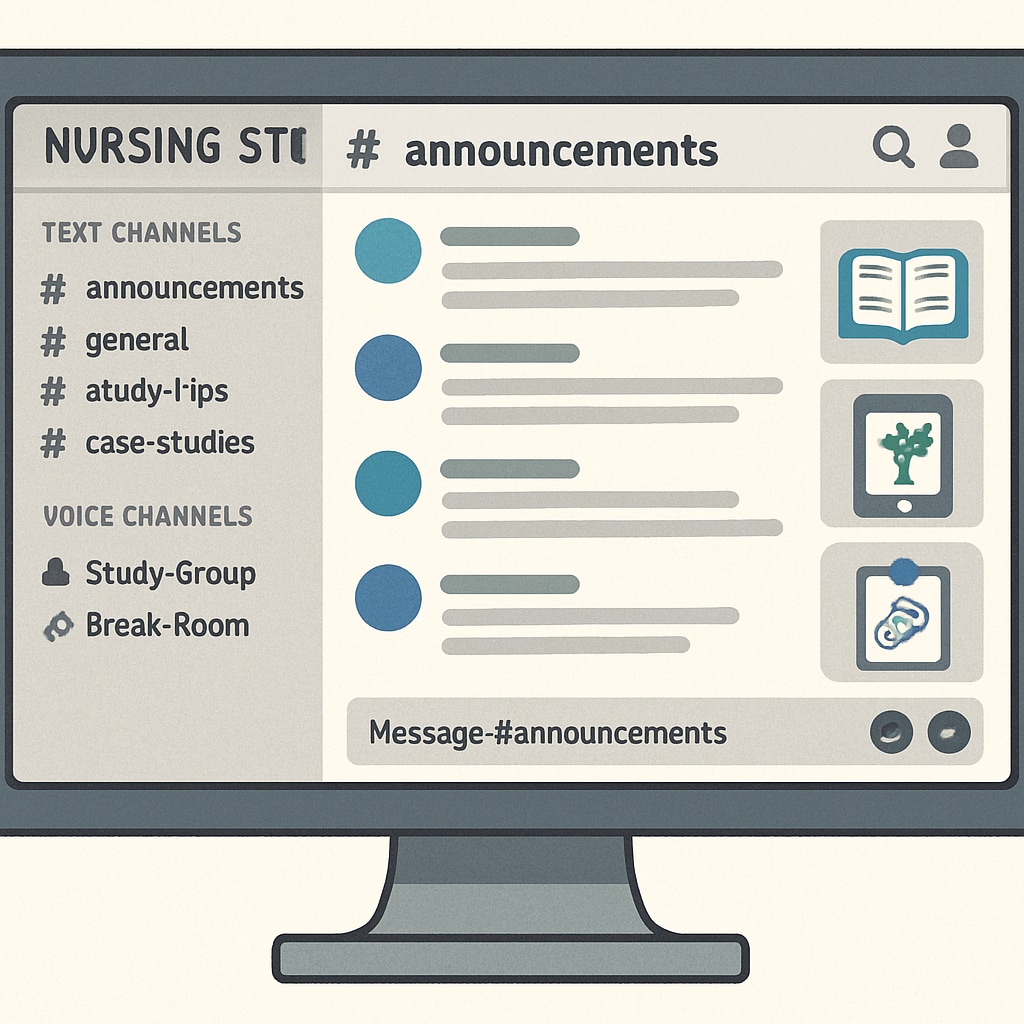In the digital age, nursing students face unique challenges in mastering complex healthcare concepts and skills. Joining study groups and leveraging platforms like Discord communities can significantly enhance their learning experience. These collaborative spaces foster peer-to-peer support, resource sharing, and a sense of community—all essential for academic success in nursing education.
The Importance of Study Groups for Nursing Students
Nursing education is rigorous, requiring students to grasp theoretical knowledge while developing practical skills. Study groups provide an opportunity for students to work collaboratively, discuss difficult concepts, and share diverse perspectives. For example, nursing students can collectively analyze case studies, review anatomy charts, or practice pharmacological calculations.
In addition, study groups encourage accountability. Students who regularly meet with peers to study are more likely to stay on track with their coursework and maintain motivation, especially during challenging semesters.

Using Discord for Building Engaging Learning Communities
Discord, originally designed for gamers, has evolved into a versatile platform for communication and collaboration. Nursing students can create or join Discord communities tailored to their academic needs. These virtual spaces allow for real-time messaging, voice calls, and resource sharing, making them ideal for study groups.
Here are some ways Discord can benefit nursing students:
- Organized Channels: Communities can create channels for specific topics, such as pharmacology, anatomy, or exam preparation.
- Accessibility: Discord is free and works on multiple devices, including smartphones and laptops, ensuring students can stay connected anywhere.
- Interactive Features: Tools like polls, screen sharing, and file uploads facilitate active learning and engagement.
For example, nursing students might use Discord to host virtual flashcard sessions, share links to video tutorials, or coordinate group projects.

Practical Strategies for Building Effective Learning Networks
Whether forming in-person study groups or virtual communities on Discord, nursing students can follow these strategies to maximize collaboration:
- Define Goals: Clearly outline the purpose of the group, such as exam preparation or skill mastery.
- Set Guidelines: Establish rules for participation, such as attendance, contribution expectations, and respectful communication.
- Leverage Technology: Use tools like Discord, Google Drive, or Zoom for resource sharing and virtual meetings.
- Encourage Diversity: Invite students with varying strengths to ensure a well-rounded learning experience.
- Schedule Regular Meetings: Consistency is key for building trust and maintaining productivity.
By adopting these practices, nursing students can create learning networks that are both efficient and supportive, fostering academic and professional growth.
The Long-Term Benefits of Collaborative Learning
Collaborative learning environments, such as study groups and Discord communities, offer more than just academic benefits. They help nursing students develop essential soft skills, including teamwork, communication, and problem-solving—qualities that are crucial for their future careers.
Moreover, these communities often evolve into professional networks that support students beyond graduation. As a result, nursing students not only excel academically but also enter the workforce more prepared and connected.
In conclusion, by embracing study groups and digital platforms like Discord, nursing students can transform their educational experience. These collaborative networks provide the tools, support, and camaraderie needed to thrive in their academic and professional journeys.
Readability guidance: This article uses short paragraphs, organized lists, and engaging headings to enhance readability. It focuses on actionable advice and uses transition words like “for example,” “in addition,” and “as a result” to maintain flow.


